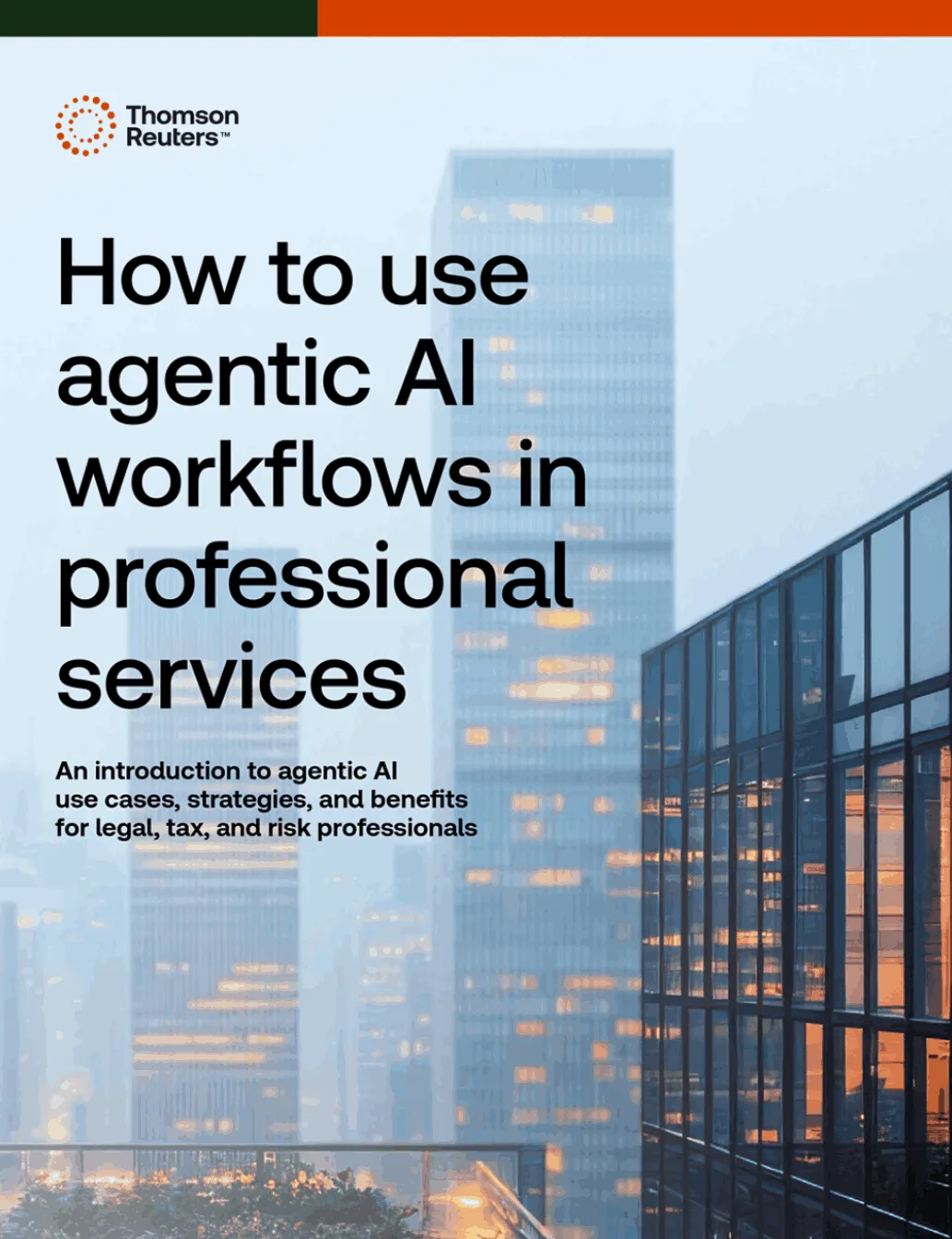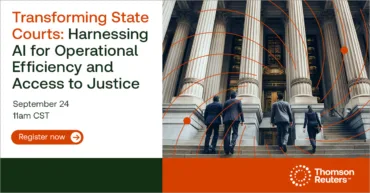Agentic AI is restructuring investigative workflows in law enforcement, corrections, and regulatory agencies, accelerating case resolution while maintaining compliance and transparency.
There is an imbalance between innovation and compliance within government agencies. Workload and staffing shortages limit the room for innovation, Luckily, the emergence of agentic AI offers a powerful tool for professionals, especially in the field of risk and fraud investigations. By automating complex processes, accelerating data analysis, and delivering actionable intelligence at scale, agentic AI is redefining operational excellence in investigations.
Jump to ↓
| A look into agentic AI in government investigations |
| 5 key benefits of agentic AI for government risk professionals |
| Overcoming agentic AI challenges |
| Strategic reallocation of efforts |
| Reinventing the workday with agentic AI |
A look into agentic AI in government investigations
Agentic AI refers to artificial intelligence systems capable of performing tasks autonomously, making decisions based on the data they analyze. In the context of investigations, agentic AI workflows are designed to streamline complex processes, such as risk and fraud investigations. These workflows involve a series of steps, from initial prompts to final reports, executed with minimal human intervention.
The process begins with an initial prompt, where these investigator sets the objective, such as conducting a due diligence investigation on a potential vendor. The AI agent then creates a multi-step plan to gather, analyze, and synthesize the necessary data. This includes collecting data from multiple sources, such as court records, corporate registries, sanctions lists, and news archives.
5 key benefits of agentic AI for government risk professionals
Agentic AI offers several benefits in risk and fraud investigations, including:
- Automated data gathering and synthesis: Agentic AI automates the collection and integration of data from multiple sources, improving efficiency and reducing the risk of human error. By leveraging entity resolution techniques, agentic AI can accurately identify subjects, distinguishing them from others with similar names.
- Enhanced risk flagging: The AI agent builds a network map of the subject’s business connections, associates, and transaction history, flagging potential risks, such as links to sanctioned entities or shell companies.
- Faster decision-making: By automating routine tasks, agentic AI accelerates the investigation process, allowing professionals to make informed decisions more quickly.
- Improved compliance: Agentic AI helps ensure compliance with regulatory requirements by maintaining a comprehensive and accurate record of investigative activities.
- Training and development: Agentic AI serves as a training and development tool for junior analysts, reducing the learning curve and reliance on senior staff.
The versatility of agentic AI is a key factor in its benefits, as it can be applied across various industries and tasks. By automating complex workflows and providing trusted content, agentic AI enables professionals to focus on high-value tasks, such as risk mitigation and nuanced decision-making.
Overcoming agentic AI challenges
Despite the benefits, there are common challenges and misconceptions associated with agentic AI. These include:
- Paralysis by complexity: The rapid pace of technological change can be overwhelming. To address this, start with simple, accessible tasks to build confidence and momentum.
- Misinformation about AI: Debunking myths about AI hallucinations and unreliable outputs is crucial. It’s essential to use agentic AI solutions grounded in authoritative content to ensure accuracy and reliability.
- Workflow integration anxiety: The fear of AI disrupting established processes can be mitigated by implementing human-in-the-loop interactions. This allows professionals to validate assumptions and provide context, ensuring that AI outputs are reliable and actionable.
To successfully implement agentic AI, organizations should start with small, high-impact use cases, align AI adoption with business priorities, and measure its impact beyond surface-level efficiency. Choosing the right partner with domain expertise and robust security is also crucial, as is fostering a culture of experimentation and building systems that are designed to evolve.
Strategic reallocation of efforts
Agentic AI enables the strategic reallocation of efforts by automating routine tasks, such as data gathering, synthesis, and risk flagging. This frees up analysts’ time for more strategic tasks, such as risk mitigation and nuanced decision-making. By focusing on high-value tasks with AI, professionals can enhance their productivity and contribute to more effective risk management and fraud investigations.
Reinventing the workday with agentic AI
To maximize the benefits of agentic AI, it’s essential to implement it with purpose. This involves understanding the benefits and challenges associated with agentic AI and aligning its adoption with business priorities. By doing so, risk professionals can harness the power of agentic AI to improve their investigative capabilities and stay ahead of emerging risks.
Human oversight is essential in agentic AI workflows to ensure accuracy, validity, and relevance, particularly in high-stakes professions like law, tax, and risk management. By combining the strengths of agentic AI with human expertise, organizations can achieve a more efficient and effective investigative process.
As government agencies continue to navigate the complexities of risk and fraud investigations, agentic AI is poised to play a critical role in enhancing their capabilities. By automating complex workflows, providing trusted content, and enabling professionals to focus on high-value tasks, agentic AI can help drive business resilience and accelerate case resolution.
To learn more about how agentic AI can enhance your risk management and fraud investigation processes, explore the possibilities of agentic AI workflows in professional services. Discover how to accelerate case resolution, maintain compliance, and drive business resilience with agentic AI.
Disclaimer
Thomson Reuters is not a consumer reporting agency, and none of its services or the data contained therein constitute a ‘consumer report’ as such term is defined in the Federal Fair Credit Reporting Act (FCRA), 15 U.S.C. sec. 1681 et seq. The data provided to you may not be used as a factor in consumer debt collection decisioning, establishing a consumer’s eligibility for credit, insurance, employment, government benefits, or housing, or for any other purpose authorized under the FCRA. By accessing one of our services, you agree not to use the service or data for any purpose authorized under the FCRA or in relation to taking an adverse action relating to a consumer application.















